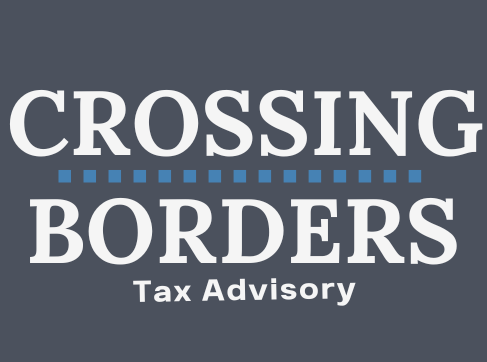When relocating from the United States to Canada, it’s tempting to focus on settling into your new life—new home, new surroundings, and new opportunities. But before you get too comfortable, it’s important to plan for the tax implications that come with this cross-border move. Failing to account for the differences between the U.S. and Canadian tax systems can result in costly penalties and double taxation, eroding your financial security.
Here’s a guide to some common tax pitfalls for individuals moving from the U.S. to Canada and how
you can avoid them.
1. Roth IRA Election: Protect Your Retirement Savings
Roth IRAs are a popular retirement savings vehicle in the U.S. due to their tax-free growth and
withdrawals. However, if you become a Canadian tax resident, failing to make the appropriate Roth election could result in the Canadian government taxing your IRA gains as regular income.
Example: A U.S. taxpayer moves to Canada but does not file the Roth election under the Canada-U.S. tax treaty. The taxpayer assumes their Roth IRA remains tax-free in Canada, as it is in the U.S.
However, without the election, Canada treats the account as taxable, and any income and gains could be subject to tax, significantly reducing their retirement savings.
How to Avoid It: Upon moving to Canada, among other things, you must make an election under the Canada-U.S. Tax Treaty to preserve the tax-free status of your Roth IRA. This ensures that the gains continue to grow tax-free while you are a resident of Canada.
2. Foreign Asset Verification Statement: Avoid Penalties on Unreported Assets
Canada has strict reporting requirements for foreign-held assets over CAD $100,000. This includes
any assets you maintain in the U.S. If you fail to file the Foreign Asset Verification Statement (Form T1135), you could face significant penalties, even if no tax is owed.
Example: A new Canadian resident still holds U.S. investment accounts and a vacation rental property in Arizona, worth over CAD $100,000 combined. They do not file the required Form T1135 to disclose these assets, thinking the tax implications only apply to income. Canada Revenue Agency (CRA) assesses a penalty of $2,500 for each missed form, compounding annually.
How to Avoid It: Ensure that all foreign assets exceeding CAD $100,000 in aggregate value are reported annually on Form T1135. This filing obligation exists even if there’s no income from the assets, and failure to report can lead to significant penalties.
3. Foreign Tax Credits: Maximize Credit for U.S. Taxes Paid
If you continue to earn income from the U.S. after becoming a Canadian resident—such as rental
income, dividends, or capital gains—you must report this income to the CRA. However, the U.S. may already have taxed that income, raising concerns about double taxation. The good news is that you can claim a foreign tax credit in Canada to offset U.S. taxes paid, but failing to do so correctly can result in over-taxation or excess claim of foreign tax credit if the tax treaty is not considered.
Example: A U.S. taxpayer relocates to Canada but continues to receive U.S. dividend income. They report the income on their Canadian tax return but claim the foreign tax credit for the U.S. taxes already withheld at 30%. When CRA reviews the foreign tax credit claim the return is reassessed as the individual is only entitled to a foreign tax paid credit of 15%.
How to Avoid It: When reporting U.S.-sourced income in Canada, work with a tax advisor to ensure you claim the correct foreign tax credits. Canada generally provides a credit for taxes paid to the U.S.,
preventing double taxation on cross-border income.
4. Failing to Restructure LLC Ownership: The LLC Trap
Many U.S. residents own Limited Liability Companies (LLCs) for business or investment purposes. However, Canada does not treat LLCs as flow-through entities the way the U.S. does. For Canadian tax purposes, LLC income may be taxed both at the corporate and personal level, possibly leading to double taxation.
Example: A U.S. taxpayer moves to Canada but retains ownership of a U.S.-based LLC used for rental property investments. In Canada, the LLC is treated as a corporation, meaning the income earned by the LLC is taxed at the corporate level, and any distributions are taxed again as personal income when received by the Canadian resident. This leads to double taxation—once in the U.S. and again in Canada—diminishing the overall profitability of the LLC.
How to Avoid It: Before your move, consult with a cross border tax advisor to plan for the possible restructuring of your U.S. investments, particularly LLCs, to avoid adverse tax treatment in Canada. This may involve converting the LLC to a more tax-efficient structure, such as a corporation or partnership, or selling the assets prior to your move.
5. Revocable Trusts: Complex Rules for Canadian Residents
Revocable trusts are popular in the U.S. for estate planning purposes, but they can create significant tax challenges when the grantor moves to Canada. Canada does not recognize the pass-through nature of these trusts, often taxing the trust’s income at high rates and complicating the reporting requirements.
Example: A U.S. resident who owns a revocable trust moves to Canada, expecting to maintain the same tax benefits they enjoyed in the U.S. However, under Canadian law, the trust’s income is now fully taxable in Canada, potentially at higher rates. In addition, the trust could be subject to complex reporting requirements, including a T3 Trust return and / or foreign trust reporting (Form T1141), which, if the taxpayer fails to file, could lead to penalties in Canada.
How to Avoid It: Before moving to Canada, review your estate planning vehicles with a cross-border tax advisor. It may be necessary to restructure the trust or reconsider its utility while you are a Canadian resident. Failing to plan ahead can result in significant tax burdens and compliance costs.
Conclusion: Plan Ahead to Avoid Cross-Border Tax Surprises
Moving from the U.S. to Canada involves more than just packing boxes—it requires careful tax
planning to ensure your financial well-being. Whether it’s properly filing a Roth election, reporting foreign assets, or restructuring LLCs and trusts, the complexities of cross-border tax law can lead to unintended consequences if you don’t prepare.
At Crossing Borders Tax Advisory, we specialize in helping clients manage the challenges of cross border moves, from planning to compliance. Our expert team ensures you don’t get caught off guard by unexpected taxes, penalties, or reporting requirements.
Contact us to discuss how we can help you navigate your cross-border move with confidence and avoid any costly tax pitfalls.


